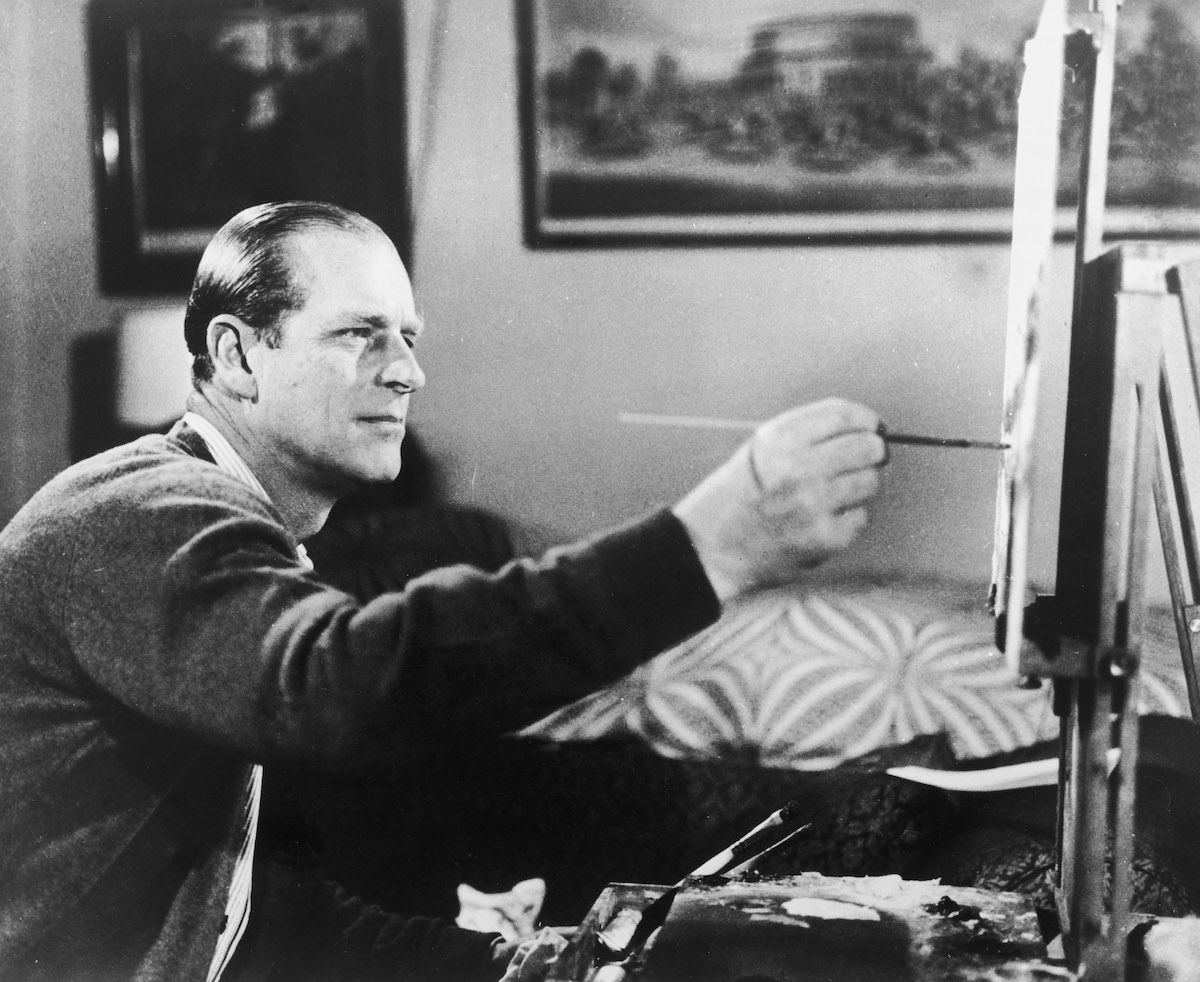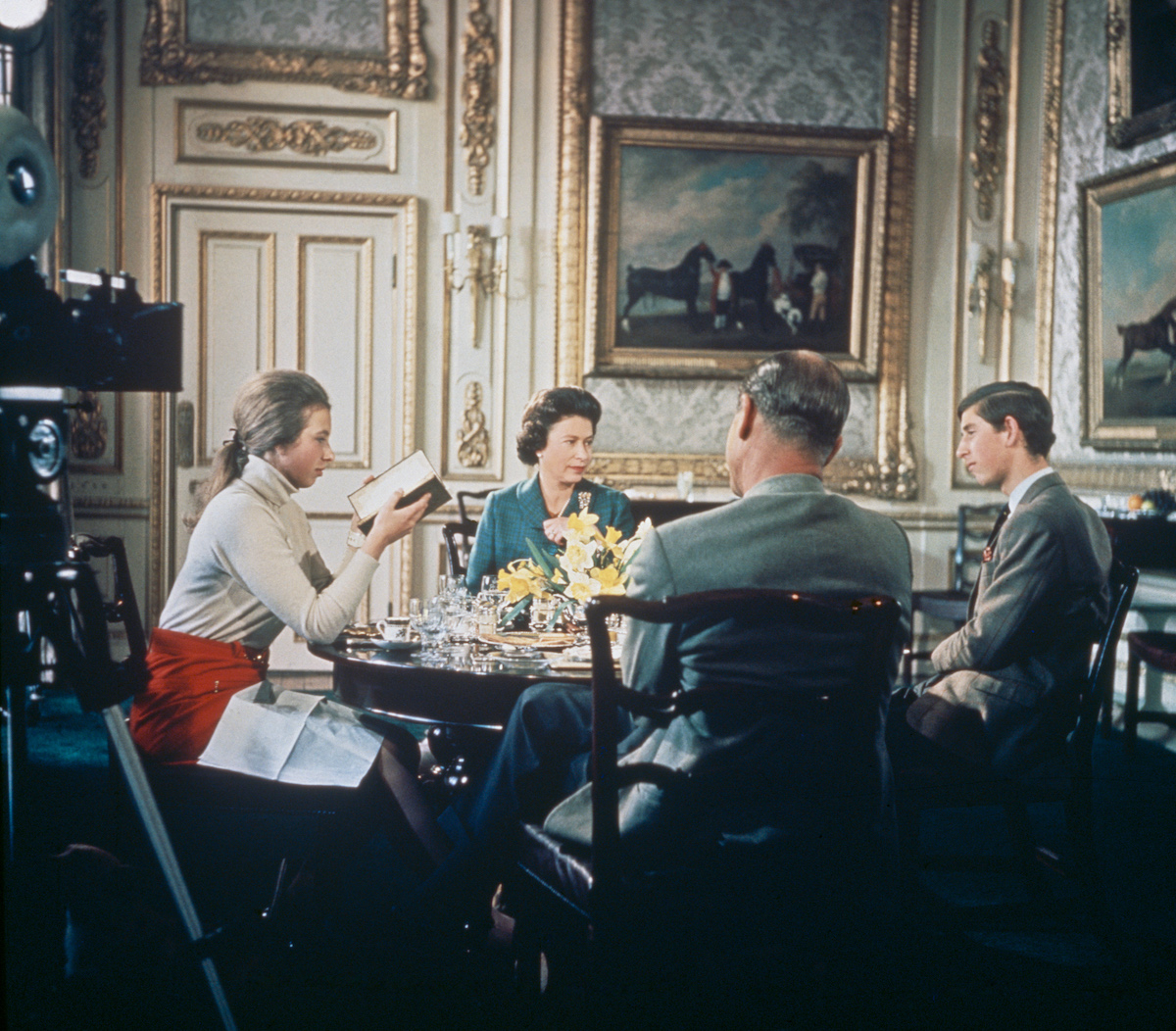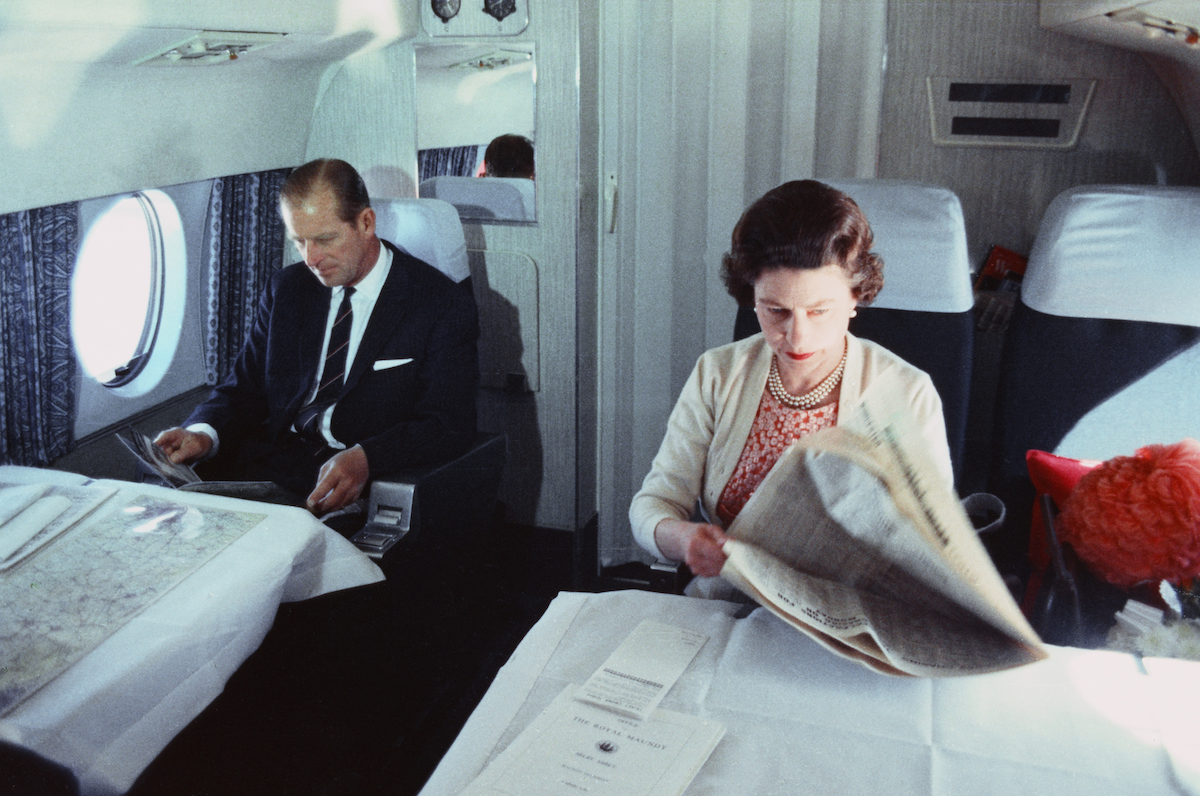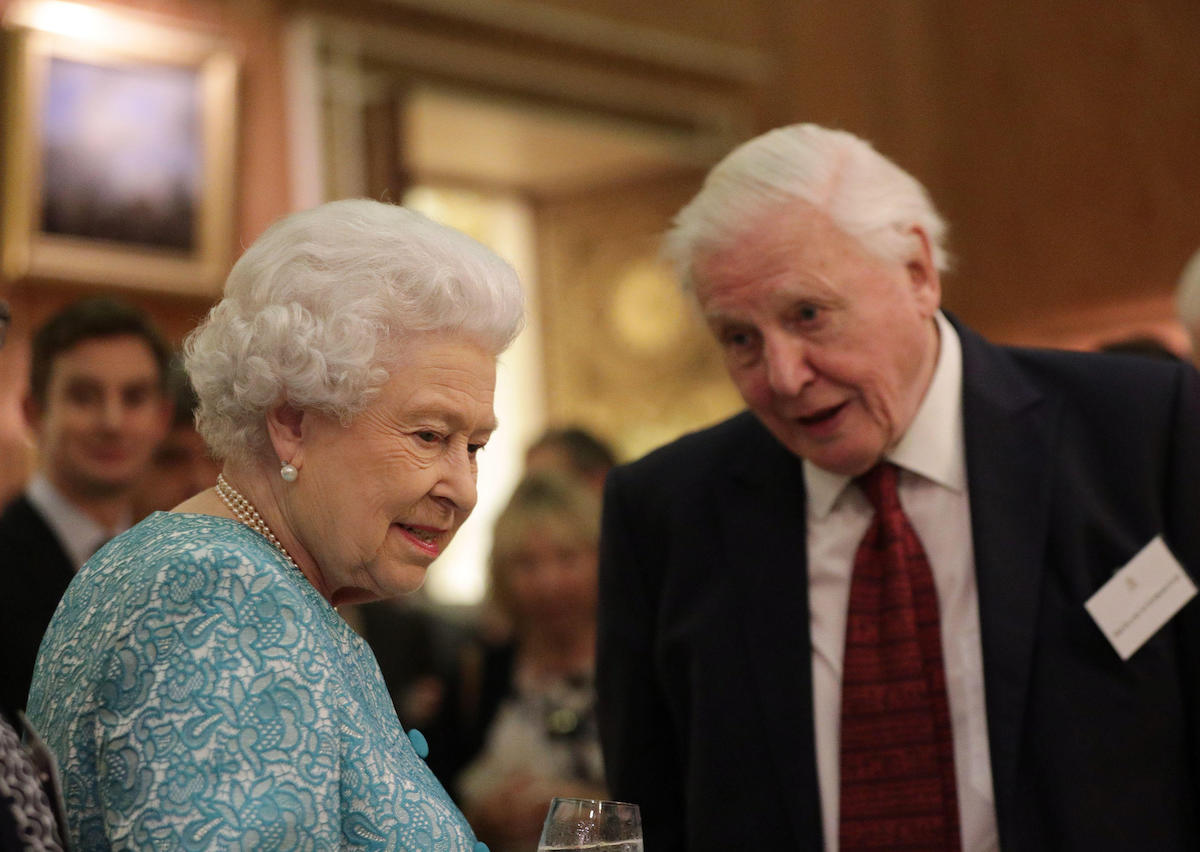What made Royal Family especially complicated for Her Majesty was the unavoidable truth that the film was the brainchild of Prince Philip, who commissioned the film, which was produced by the BBC. Philip believed an up close and personal look into the day-to-day lives of the Royals would boost the family’s image in the late 1960s. He wanted them to appear “more in step with the times,” said a Palace insider. And for more on the royals’ current struggles, check out Why the Royal Family May Not Stay Politically Neutral in the Future. Philip opened the Palace doors to a film crew who followed the Queen and himself along with their four children—Prince Charles, Princess Anne, Prince Andrew, and Prince Edward—for 75 days as they went about their daily lives. (There’s an episode in Season 3 of The Crown that depicts the filming and the family’s reluctant participation.) The 110-minute documentary focused on both the public and private lives of the royals, chronicling everything from Philip grilling sausages while the Queen and Charles made salad dressing at Balmoral to the Queen making small talk with former U.S. President Richard Nixon (“World problems are so complex, aren’t they now?” she said to him). One of the more sensational disclosures at the time was that Her Majesty used Tupperware on her table. And for more on Her Majesty’s habits, check out The One Thing Queen Elizabeth Never Leaves Home Without. Royal Family premiered on June 21, 1969 and gave viewers an unprecedented fly-on-the-wall look at the British royals as they had never been seen before. The documentary was a ratings hit with 23 million people tuning in for the premiere; it was ultimately seen by more than 60 percent of the British adult population. But the Queen thought the finished product was a disaster. “After seeing the documentary, Her Majesty thought showing the royals having a barbecue and fussing around doing various private activities did more harm than good for the image of the monarchy,” said an insider.ae0fcc31ae342fd3a1346ebb1f342fcb Robert Lacey, royal biographer and historical consultant on The Crown, said: “They realized that if they did something like that too often, they would cheapen themselves, letting the magic seep out.” After airings on the BBC and ITV and a few repeat showings in the U.K., the Queen withdrew Royal Family from circulation in 1970, demanding the film be locked away in the royal archives. It has never again been seen again in its entirety. And for more regular royals updates, sign up for our daily newsletter. Ingrid Seward, author of The Queen and Di: The Untold Story, wrote that when the documentary was being made, Sir David Attenborough sent a letter to the BBC warning that the network would be “killing the monarchy” if this intimate look behind Palace walls made it to air. He predicted it would be deeply damaging to the Royal family. Seward concluded, “It was a warning which was ignored and, in retrospect, the program came to be seen to have given fateful encouragement to exactly the kind of intrusive interest in their lives which the Royal family were at such pains to avoid.” Ironically, Attenborough recently appeared in a video released on Prince William’s and Duchess Catherine’s Instagram talking to the Cambridge kids—Prince George, Princess Charlotte, and Prince Louis—about their favorite animals. The noted environmentalist is one of the many experts William has joined forces with on his Earthshot initiative, in what he hopes will become the Nobel Prize for environmentalism. “The Royals have come a long way in their understanding of the media,” said a royal source. “The appetite for that kind of documentary is at an all-time high now, but a film like that would never, ever see the light of day today.” And for more on how the monarchy has changed, check out Meghan Markle’s Life-Changing Decisions That Rocked the Royals in 2020. Diane Clehane is a New York-based journalist and author of Imagining Diana and Diana: The Secrets of Her Style.



